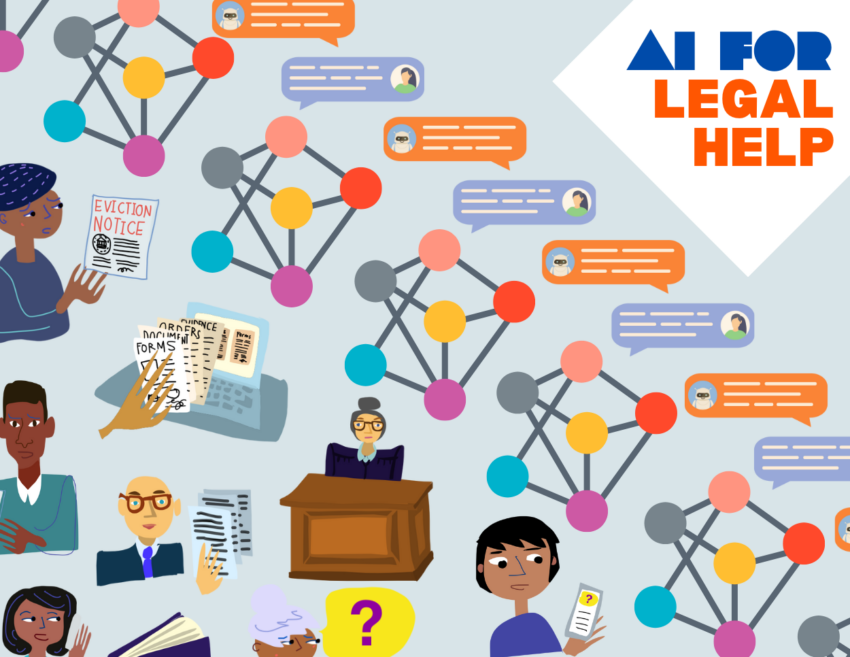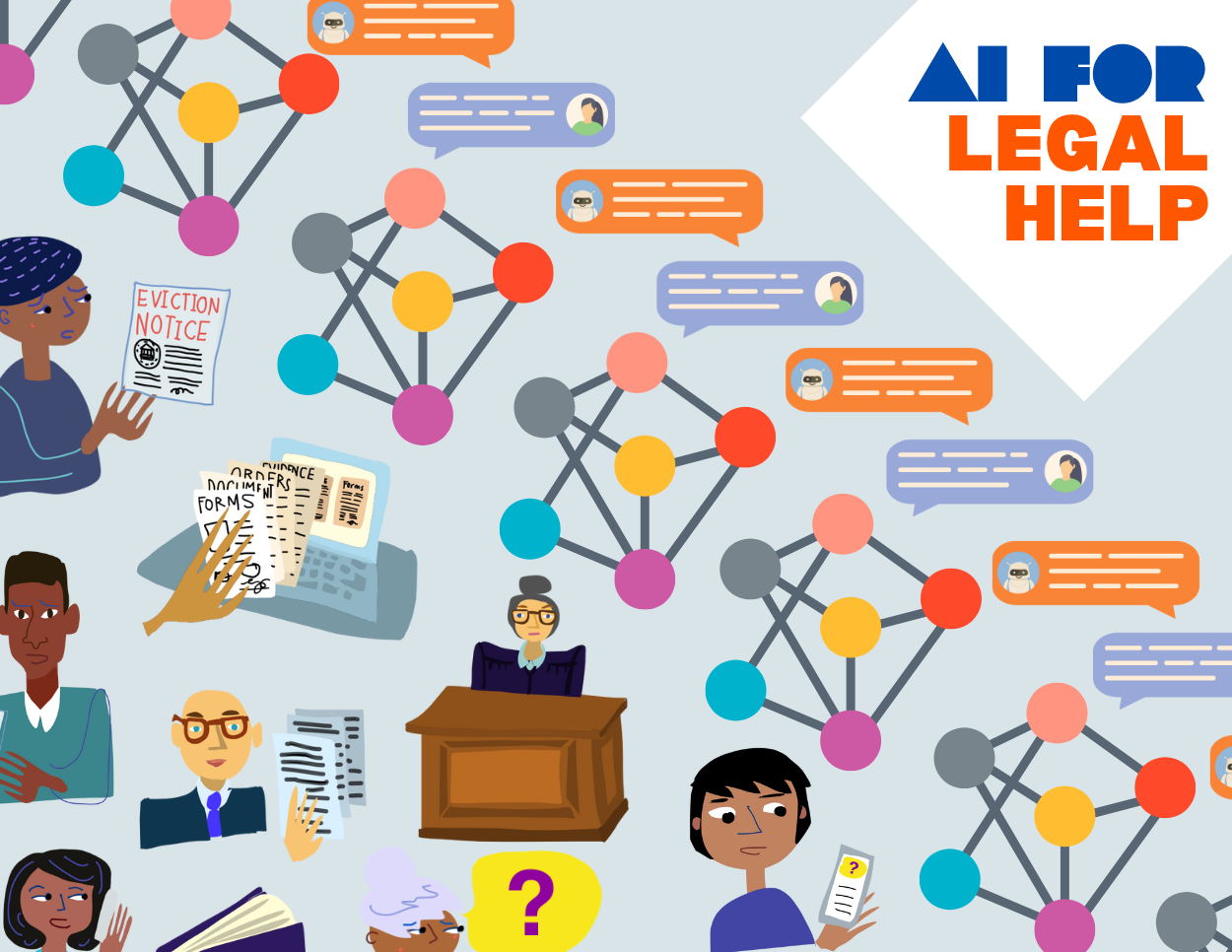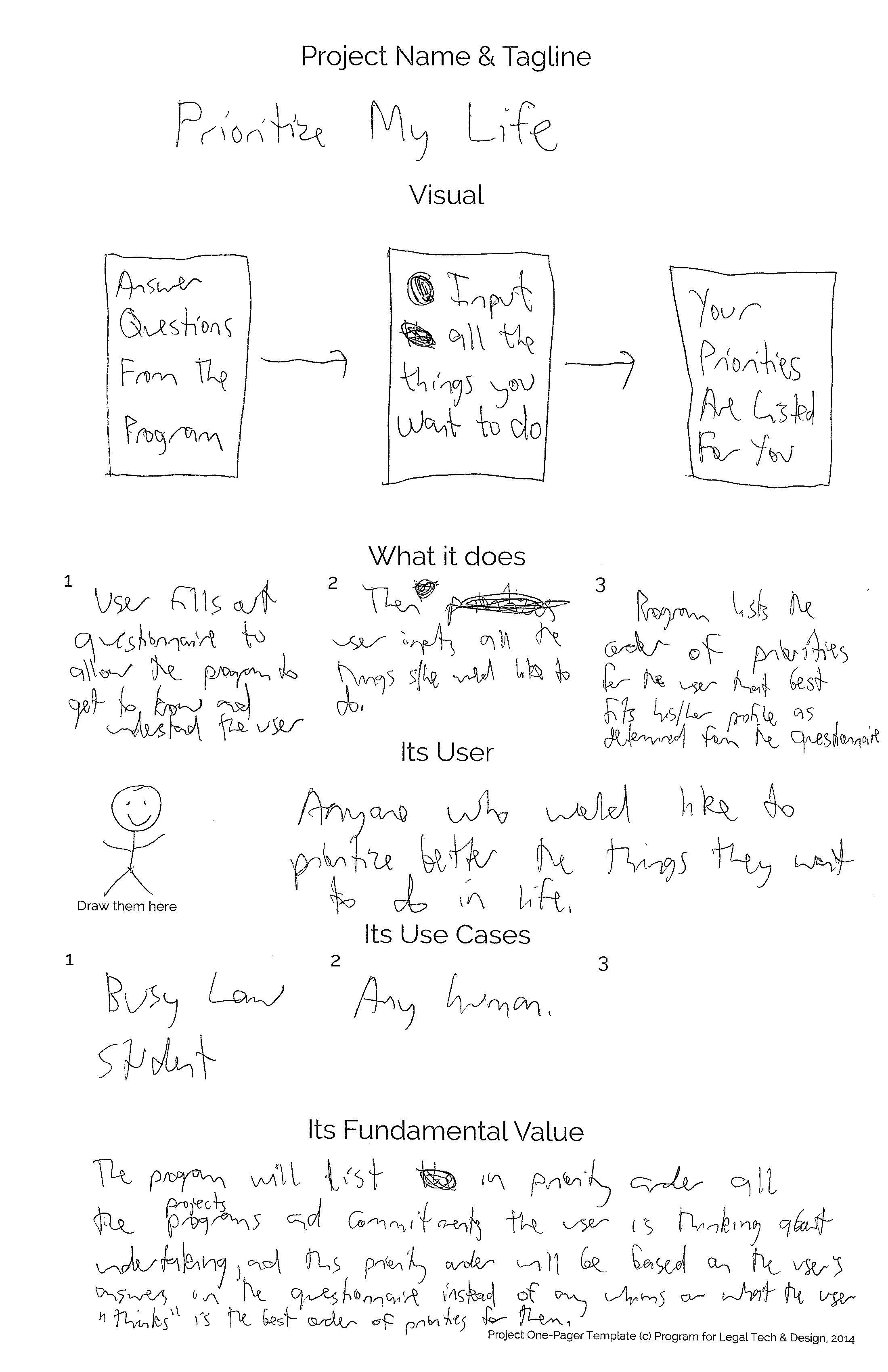In July, an interdisciplinary group of researchers at Stanford hosted the “AI and Legal Help Crossover” event, for stakeholders from the civil justice system and computer science to meet, talk, and identify promising next steps to advance the responsible development of AI for improving the justice system.
This builds off of our Spring workshop, co-hosted with the Self-Represented Litigants Network, that led justice professionals through a brainstorm of how AI could help them and their clients around access to justice.

Here are 3 topic areas that arose out of this workshop, that we’re excited to work on more in the future!
Topic 1: Next Steps for advancing AI & Justice work
These are the activities that participants highlighted as valuable for
Events that dive into AI applications, research, and evaluation in specific areas of the justice system. For example, could we hold meetings that focus in on specific topics, like:
- High volume, quick proceedings like for Debt, Traffic, Parking, and Eviction. These case types might have similar dynamics, processes, and litigant needs.
- What are the ideas for applications that could improve the quality of justice and outcomes in these areas?
- What kinds of research, datasets, and protocols might be done in these areas in particular, that would matter to policymakers, service providers, or communities?
- Innovation hot areas like Eviction Diversion and Criminal Justice Diversion, where there already are many pilots happening to improve outcomes. If there is already energy to pilot new interventions in a particular area, can we amplify these with AI?
Local Justice/AI R&D Community-building, to have regional hubs in areas where there are anchor institutions with AI research/development capacity & those with justice system expertise. Can we have a network of local groups who are working on improving AI development & research? And where local experts in computer science can learn about the opportunities for work with justice system actors — so that they are informed & connected to do relevant work.
Index of Justice/AI Research, Datasets, Pilots, and Partners, so that more people new to this area (both from technical and legal backgrounds) can see what is happening, build relationships, and collaborate with each other.
Domain Expert Community meetings that could attract more legal aid lawyers, self-help court staff, clerks, navigators, judicial officers, and those who have on-the-ground experience with helping litigants through the court system. Could we start gathering and standardizing their expertise — into more formal benchmarks, rating scales, and evaluation protocols?
Unauthorized Practice of Law & Regulatory Discussions to talk through where legal professional rules might play out with AI tools – -and how they might be interpreted or adapted to best protect people from harm while benefiting people with increased access and empowerment.
National Group Leadership and Support, in which professional groups and consortia like the Legal Services Corporation, State Justice Institute Joint Technology Committee, CiTOC, Bureau of Justice Statistics, Department of Justice, or National Center of State Courts could help:
- Define an agenda for projects, research, and evaluation needs
- Encourage groups to standardize data and make it available
- Call for pilots and partnerships, and help with the matchmaking of researchers, developers, and courts/legal aid groups
- Incentivize pilots and evaluation with funding dedicated to human-centered AI for justice
Topic 2: Tasks where AI might help with justice systems research.
We grouped the ideas for applications of AI in the justice system into some themes. These resonate with our earlier workshop on ideas for AI in the justice sector, that we held with the Self Represented Litigation Network:
- Litigant Empowerment applications
- Service Improvement applications
- Accountability applications
- Research & System Design applications
Litigant Empowerment themes
- AI for litigant decision-making, to help a person understand possible outcomes that may result from a certain claim, defense, or choice they make in the justice system. It could help them be more strategic with their choices, wording, etc.
- AI to craft better claims and arguments so that litigants or their advocates could understand the strongest claims, arguments, citations, and evidence to use.
- AI for narratives and document completion, to help a litigant quickly from their summary of their facts and experiences to a properly formatted and written court filing.
- AI for legalese to plain language translation, that could help a person understand a notice, contract, court order, or other legal document they receive.
Service Improvement themes
- AI for legal aid or court centers to intake/triage users to the right issue area, level of service, and resources they can use.
- AI for chat and coaching, to package experts’ knowledge about following a court process, filling in a form, preparing for a hearing, or other legal tasks.
Accountability themes
- AI to spot policy/advocacy targets, where legal aid advocates, attorney general offices, or journalists could see which courts or judges might have issues with the quality of justice in their proceedings, where more training or advocacy for change might be needed.
- AI to spot fraud, bad practices, and concerning trends. For example, can it scan petitions being filed in debt cases to flag to clerks where the dates, amounts, or claims mean that the claim is not valid? Or can it look through settlement agreements in housing or debt cases to find concerning terms or dynamics?
Research & System Design themes
- AI to understand where processes need simplification, or where systems need to be reformed. They could understand through user error rates, continuances, low participation rates, or other factors which parts of the justice system are the least accessible — and where rules, services, and technology needs reform.
- AI for understanding the court’s performance, to see what is happening not only in the case-level data but also at the document-level. This could give much more substance to what processes and outcomes people are experiencing.
Topic 3: Data that will be important to make progress on Justice & AI
Legal Procedure, Services, and Form data, that has been vetted by experts and approved as up to date. This data might then train a model of ‘reliable, authoritative’ legal information for each jurisdiction about what a litigant should know when dealing with a certain legal problem.
- Could researchers work with the LSC and local legal aid & court groups that maintain self-help content (legal help websites, procedural guides, forms, etc.) to gather this local procedural information – -and then build a model that can deliver high-quality, jurisdiction-specific procedural guidance?
Court Document data, that includes the substance of pleadings, settlements, and judgments. Access to datasets with substantive data about the claims litigants are making, the terms they agree to, and the outcomes in judgments can give needed information for research about the court, and also AI tools for litigants & service providers that analyze, synthesize, and predict.
- Could courts partner with researchers to make filings and settlement documents available, in an ethical/privacy-friendly way?
Domain Expert data in which they help rate or label legal data. What is good or bad? What is helpful or harmful? Building successful AI pilots will need input and quality control from domain experts — especially those who see how legal documents, processes, and services play out in practice.
- Could justice groups & universities help bring legal experts together to help define standards, label datasets, and give input on the quality of models’ output? What are the structures, incentives, and compensation needed to get legal experts more involved in this?


